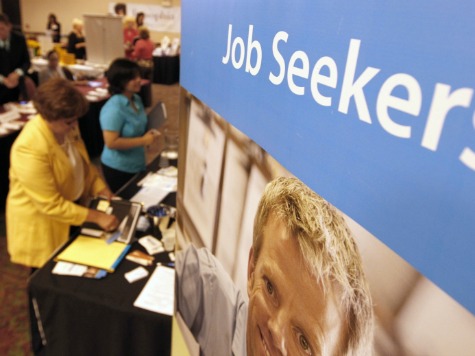The latest polls indicate a weak economy continues to drag down President Obama’s job approval rating, but those hardly guarantee any big changes in Washington. Americans may want more jobs and better wages but they also support many of the president’s specific policies.
Obama’s recovery is hardly better, or worse, than President Bush’s. Both only registered 2.3 percent GDP growth, whereas the economy expanded more than 4 percent annually for Ronald Reagan and Bill Clinton.
Granted Bush’s gains were wiped out by the financial crisis, but that calamity was sewn during Clinton’s last years by Treasury Secretary Larry Summers’ repeal of Glass-Steagall banking regulations, which untethered gambling on Wall Street.
The continuing mess in Manhattan is a joint venture of the Republican and Democratic Parties, as neither seems able to break loose from its campaign contributions. Dodd-Frank reforms have only made borrowing more difficult for small businesses and home buyers. Big bonuses keep flowing, as the banks shift focus from derivatives to hawking soon to fail state and municipal debt, and other schemes. It might be saner to give them a dog track.
Too many young adults are saddled with huge college debt and living with their parents, and one out of six men between ages 25 and 54 are jobless with few prospects of ever finding full-time employment again.
The causes are easy to identify: excessive health care subsidies and income support that Democrats now praise for encouraging poorer folks not to work and increase federal, state, and local taxes. And entitlements divert funds from investments in road, bridges, and basic R&D.
The 2014 Economic Report of the President promises more of the same. It assumes a brief burst of growth above 3 percent–mostly created by young folks now borrowing to obtain graduate degrees in high demand fields like law and museum studies miraculously finding jobs, paying off student debt, buying houses, and having babies. Then, it predicts growth returns to the lethargic 2.3 percent for the foreseeable future.
Over the next several years, pent up demand for houses and cars will give growth a temporary boost, but unacceptably high unemployment will continue because high taxes and overregulation drive away investment, and in a globalized economy American-based business cannot compete when the president will not level the playing field vis-à-vis foreign competitors or let the American economy play its strength–abundant energy.
Germany, Japan, and China are America’s principal competitors, and each undervalues its currency to artificially make its products cheap against American products on U.S. store shelves and in global markets.
Onshore drilling in North Dakota and Texas notwithstanding, the United States still imports as much oil as it produces, when drilling off the Atlantic, Pacific, and eastern Gulf Coasts could eliminate dependence on foreign oil.
Fixing those issues would increase GDP by $750 billion and create seven million jobs over three years–after that economic growth would stay well above 3 percent indefinitely.
Still American voters do not seem to support rolling back most entitlements to ease tax burdens, repealing Dodd-Frank, and breaking up the big U.S. banks, scaling back other business regulations, or drilling off shore. If they did, Mitt Romney, who ran on those policies, would be president.
Hillary Clinton, as president, would not reverse those policies. She talks endlessly about programs for girls, when boys and young men are doing much worse in schools, colleges, and the job market–and not much else.
Women voters don’t want to hear about those facts, and are more focused on the glass ceiling in the Oval Office than backing any Republican who could create a decent jobs market for their twenty-something children and middle aged husbands.
My recommendation to young men–emigrate.
Peter Morici is an economist and professor at the Smith School of Business, University of Maryland, and a widely published columnist. He tweets @pmorici1

COMMENTS
Please let us know if you're having issues with commenting.